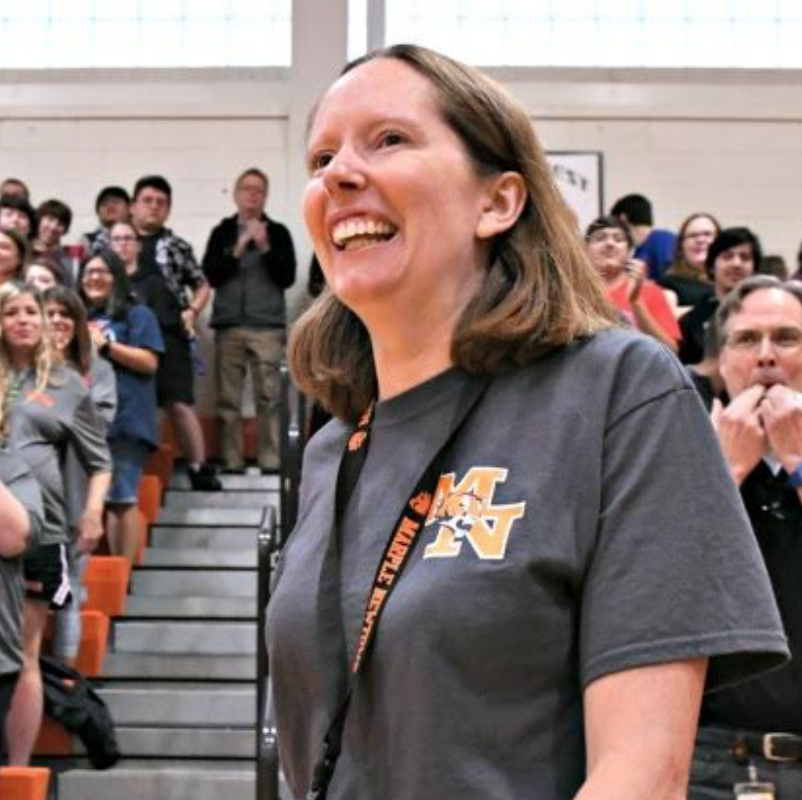“The whole world is a classroom” the adage goes, and for families across the Delaware Valley, it’s literally true.
With Gov. Tom Wolf’s closing of the remainder of the 2019-20 academic year, parents have been forced to turn the kitchen table or the living room sofa into a makeshift classroom. And many of them are asking: “Now what?”
Delaware Valley Journal spoke with two regional award-winning teachers to glean some helpful hints from their years of expertise — educational, emotional, practical — and pass them on to help improve the educate-from-home experience.
Elizabeth Landes teaches high school biology and life science at Marple Newtown High School in Newtown Square and is a recent winner of the prestigious Milken Educator Award. Her most important advice: Don’t go it alone. It’s easy for some parents to feel they are obtrusive by contacting the teacher, but Landes says that is almost never the case.
“As a parent myself, I know I’ve been hesitant to reach out to teachers,” Landes said. “I don’t want to tell my children’s teachers their job. I lay low for the most part, but even in the last few weeks, I’ve found I have reached out, and when things weren’t working, I let [the teacher] know, and I think he was appreciative of that.”
Anthony Grisillo is a teacher-librarian at Rose Tree Media School District in Delaware County, and was the 2014-15 Pennsylvania teacher of the year. He agrees completely with Landes that staying in contact with the primary teacher is essential.

“I just hope parents realize this is our job. We want to be here to help them be successful and their children be successful.”
Setting schedules and achievement goals are good ideas, but both Landes and Grisillo stressed that flexibility is what makes all of that work.
“I think it’s going to be different for every kid, but I know personally, with my own kids I try to get them up and working early in the morning because I know it’s going to get harder as the day goes on to keep their attention,” Landes said. “But I think the bottom line is, a typical school day is not going to be replicated at home.”
Grisillo recommends adhering to the “KISS” method: Keep It Super Simple.
“I have a lot of colleagues and friends who are coming up with these interactive charts and schedules and stuff that the kids need to follow to the letter. And that’s great, especially if your child needs a regiment like that,” he said. “But the more complex you make that, sometimes you’re more worried about keeping to [the schedule] than what’s of real value.”
Beyond scheduling, Grisillo recommends having a set place for the child to work. When the set place is used repeatedly over time, it creates an environmental “guideline” that lets them know “that’s where they do their work and that’s their first expectation, is to get done some part of what they’re expected to do for school.”
Landes and Grissilo said to keep interest up and to also break up the day, look for those learning opportunities in the backyard, while obviously still keeping social distancing top of mind.
“Every day I’ve made my kids go outside and do something with me [in the backyard],” Grisillo said. “It could be I’m digging in the garden and, ‘Oh look, I found these grub worms, I wonder what these are,’ and just asking questions and having fun with that.”
“I know I’ve seen pictures of some of my friends’ kids learning how to use power tools in the garage,” Landes said about incorporating some close-at-hand learning activities into the day. “I’ve heard my own kids talking about how certain flowering trees are blossoming now but the cherry trees aren’t yet, and I think all of that is learning.”
Finally, both stressed it is important to remember that these are unprecedented times, so go easy on yourself.
“I think parents need to understand they don’t need to know everything,” Grisillo said. “The child doesn’t need to know everything. The point is to have the child asking questions and trying to find answers and showing that they have some understanding of [the topic] themselves.”
“Parents should treat themselves and their children with grace and just do the best that they can,” Landes said. “What’s being asked of all stakeholders — parents, students, teachers, administrators — it’s all just so extraordinary.”

